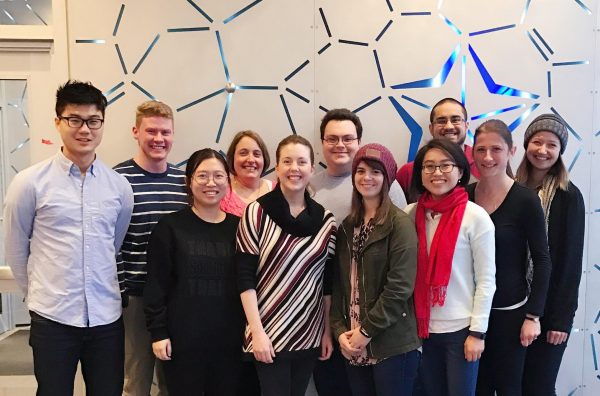LAS Day at the State Fair
Author: Amy Juhnke
Author: Amy Juhnke
Aug. 5, 2019 – Visit the College of Liberal Arts and Sciences in the Iowa State University booth on August 10, 2019 at the Iowa State Fair!
The theme of Iowa State’s fair exhibit this year is innovation and entrepreneurship – part of an ongoing university initiative to nurture a campuswide culture of innovation and entrepreneurship, and to provide resources and support for students, faculty and staff to turn their ideas into reality.
One component of the exhibit is “The Great Iowa State Pitch Off: STANDING InnOVATION!” Students from every college will compete in the pitch-offs from 9:30 a.m. to 4:30 p.m. during the first eight days of the fair. There will be 14 pitches — two per hour — every day. Each entrepreneur will have up to five minutes for their presentation, followed by a five-minute Q&A with the audience. Each hour, audience members will vote for participants to move to the semifinals by dropping a soybean into a Mason jar. You can cheer on LAS students on August 10, LAS Day!
The university exhibit will also include innovations at Iowa State on display. LAS is highlighting the work of Robbyn Anand, assistant professor of chemistry. A brief description of research that will be on display follows:
Cancer starts as one rogue cell, dividing, evolving, and colonizing in the body. With time, these tumors can reach the blood, shedding cells into circulation. It’s an invasive army of needles in a haystack. Every circulating tumor cell (CTC) carries important genetic information, but current methods are unable to identify all CTCs and their mutations. Often enough, patients are treated with therapies that are not specific enough for them, causing a relapse in their cancer.

What if cancer treatments were personalized for individual patients?
Dr. Robbyn Anand, assistant professor of chemistry at Iowa State University, leads a team of graduate students seeking to answer this question. They are developing a new diagnostic method which will help doctors detect and treat cancer to fit the needs of the patient. This innovative device captures cells one-by-one and isolates the elusive CTCs for analysis. This means doctors can perform more thorough testing and can administer highly customized, targeted treatment. The research will help prevent tumor metastasis – the spread of cancer to other parts of the body.
Dr. Anand and her team hope to present a finished product to the FDA for approval in 2-3 years. Meanwhile, she has additional research projects that will impact the healthcare industry, including the improvement of dialysis treatment for patients with kidney disease, diagnostic measures for autoimmune disease, and drug resistance. Her work is funded by the U.S. Department of Health & Human Services National Institutes of Health and the National Science Foundation, and many other highly selective organizations.